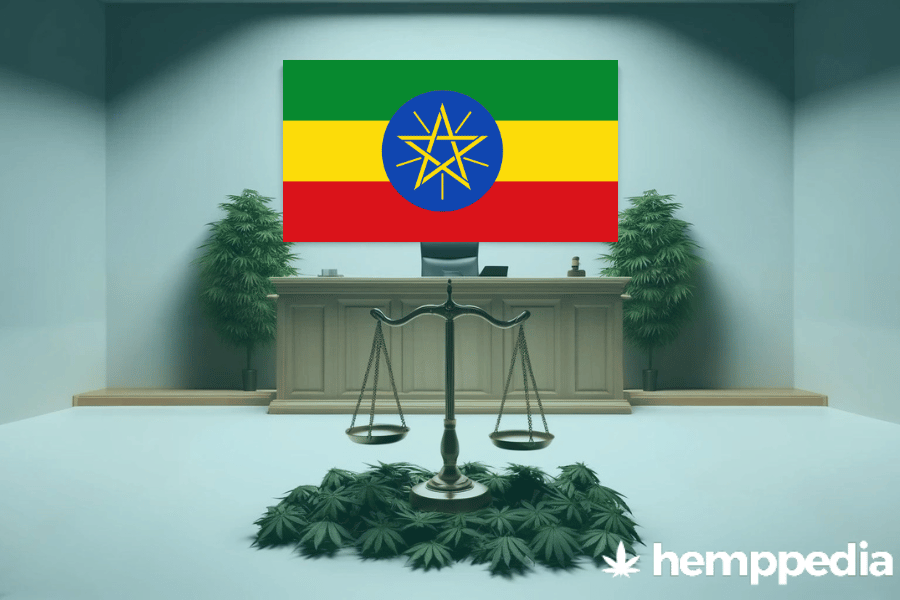TL;DR
The legality of CBD (cannabidiol) in Ethiopia is a bit vague, with no explicit laws supporting or prohibiting its use. As the global context continues to evolve towards more liberal CBD regulations, the legal status of CBD in Ethiopia remains blurred, much like several other countries grappling with the roll-out of this cannabis extract (derived primarily from the hemp plant). This blog post provides an in-depth look into this sector.
Quick Facts:
- Current status of CBD in Ethiopia: Not explicitly legal or illegal
- Regulatory body: Ministry of Health and Food, Drug, and Healthcare Administration and Control Authority of Ethiopia
- Allowed types of products: Undefined
- Medical prescription needed?: Unclear
Overview of CBD Legislation in Ethiopia
In this segment, we will further delve into the legislation around CBD within the Ethiopian context, discussing key definitions and the role of the regulator.
Define Key Terms
CBD, or cannabidiol, is a non-psychoactive compound derived primarily from the hemp plant. Unlike THC (tetrahydrocannabinol), it does not induce a ‘high’ but is highly sought-after for its potential therapeutic properties.
Legal Landscape
CBD, along with other cannabis extracts, falls under the purview of the Minister of Health and FDHACA (Food, Drug and Healthcare Administration and Control Authority) in Ethiopia. It is noteworthy that these bodies haven’t made explicit laws concerning CBD and thus, its usage is neither permitted nor prohibited.
Conditions and Restrictions
Since there is a lack of explicit laws regarding CBD, conditions and restrictions are undefined. It is advisable to seek legal advice before proceeding with CBD-related activities in Ethiopia.
Historical Context
While Ethiopia has a long history of cannabis cultivation and usage, CBD, a non-psychotropic cannabis extract, has not been an area of focus in the country’s legislation to date. Changes in the global narrative and ongoing research may drive clarity in the near future.
Possession, Use, Cultivation, and Sales
Even as many countries around the world are turning to legalize and regulate CBD, Ethiopia’s stance on possession, sale, and cultivation of CBD remains undefined. Hence, specific regulations covering the said areas are non-existent at the moment.
Enforcement and Penalties
Given the lack of explicit laws, there is limited publicly-accessible information on the legal consequences of using, cultivating, and selling CBD in Ethiopia. Until such regulations are issued, it is best to seek legal counsel to navigate any risks involved.
Comparative Analysis
Compared to countries in the European Union and North America, where the CBD industry is highly regulated, Ethiopia is yet to make explicit laws concerning CBD. This mirrors the situation in a majority of countries in Africa.
Conclusion
In sum, CBD enjoys a vague legal status in Ethiopia, owing to the lack of specific legislation. As new research illuminates the potential benefits of CBD, it is likely that we may see regulatory changes in the future, both globally and within Ethiopia. Until then, caution and legal counselling are advised for anyone looking into CBD-related activities in Ethiopia.





